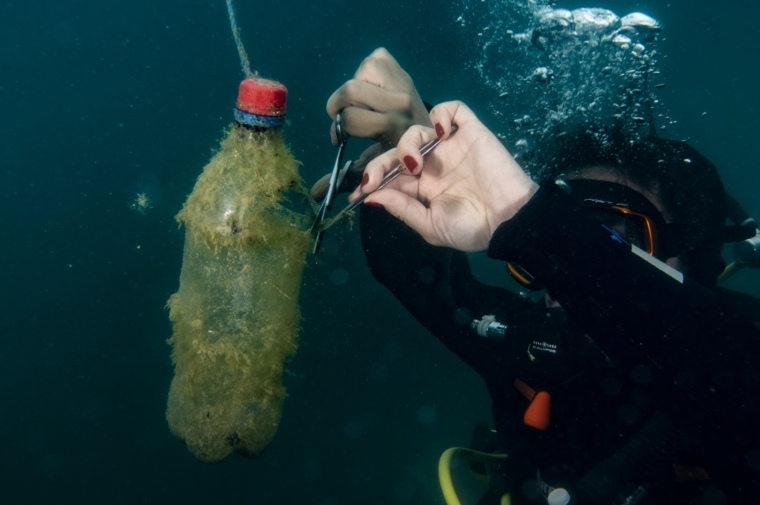Plastic plates and polystyrene cups used to be staples of British picnic. But fans of al-fresco dining will need to switch to more eco-friendly glass and paper alternatives under new Government plans to restrict the use of single-use plastic.
Ministers are announcing plans on Saturday to ban single-use plastic plates, cutlery and polystyrene cups in England as part of attempts to prevent all avoidable plastic waste by 2042.
A public consultation on banning the items will be launched in the autumn, with the aim of businesses using more sustainable alternatives and cutting polluting plastic litter.
While many people and businesses have already switched to compostable coffee cups and cardboard crockery, government figures suggest the average person in England still gets through 18 single-use plastic plates and 37 single-use plastic items of cutlery each year.
Once used and discarded, these items can end up as landfill or litter that will take hundreds of years to break down. Around the world, more than one million birds and more than 100,000 sea mammals and turtles die every year from eating plastic waste or getting tangled in it.
“We’ve all seen the damage that plastic does to our environment,” said Environment Secretary George Eustice. “It is right that we put in place measures that will tackle the plastic carelessly strewn across our parks and green spaces and washed up on beaches.”
“These plans will help us stamp out the unnecessary use of plastics that wreak havoc with our natural environment,” he said.
The government has already taken steps to curb the use of plastic carrier bags, banned the supply of plastic straws, stirrers and cotton buds, and outlawed the use of plastic microbeads in cosmetics.

But it has faced criticism for being too slow in taking action to tackle other types of waste such as plastic bottles, which are one of the main sources of plastic pollution in the oceans.
Kierra Box, a campaigner at Friends of the Earth, said a “product-by-product approach won’t fix the plastic pollution crisis at the speed we need”.
She called for the Government to legislate for legally binding targets to tackle all types of plastic pollution and cut back on single-use products altogether.
“It’s the perfect opportunity to make reuse and refill part of everyday life,” she said. “We know the public wants it, the government must now make it easier for us all to make better choices.”
Greenpeace UK’s head of oceans Will McCallum agreed: “After years of talking about being a leader in this field, the UK government has managed to crack down on a grand total of four single-use plastic items and microplastics,” he said. “This snail-paced, piecemeal approach isn’t leadership.”

